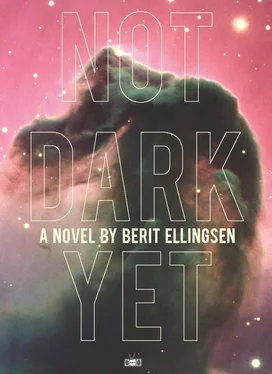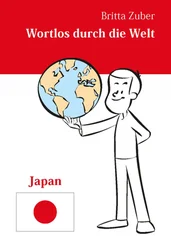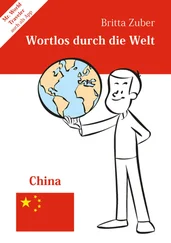Kaye took a sip, then grimaced. “Supposedly, the best coffee comes from beans that have been shat out by a small tropical mammal. Its digestion processes change the beans in a way artificial methods can’t. Of course, the animals are now being farmed in battery cages and force-fed coffee beans for commercial purposes.”
“That’s terrible,” he said.
“How is the agricultural project going?” Kaye said.
“Splendid,” he said. “The winter wheat has already tillered. It looks as if we shall be able to harvest in the spring.”
“Unbelievable,” Kaye said.
“How are the lectures going?”
“There’s been a lot of interest in them, which is good,” Kaye said. “But all of us who are arranging the presentations want to do something more, something concrete, not just talk.”
He had intuited as much from Kaye’s conviction and secrecy, but had still hoped his suspicions were wrong. Now hearing the assistant professor put it into words made his stomach knot and the skin at the back of his neck feel tight. “Such as?” he finally said.
Kaye leaned closer to him across the table. “The scientists, the policy-makers, and the public have known about the destruction of the environment and the destabilizing of the climate systems for years. The warning signs were there decades ago, but we kept on like it didn’t matter. We’re paying the price now, all of us. But it’s not too late to do something, it’s not too late to change.”
“It’s not?” he muttered.
Kaye’s eyes narrowed. “It’s never too late to change,” Kaye said, meeting his eyes. “But governments will rarely do so, corporations never, not the money, not the power, so we have to do it, we, it’s up to us.”
Now he understood why the assistant professor’s recent life changes looked like a new beginning, or a clean ending. “Why isn’t it enough to vote, to elect the right politicians, the right parties?” he said.
“That’s what we’ve been doing for the last decades and look where it’s gotten us,” Kaye spat. “Another thirty years and we’ll still be in the same place, I can guarantee you that.”
“So what’s the solution, then?” he said, feeling like he was in a spacecraft that was spinning out of control.
“You’ve utilized your personal initiative for a higher cause before,” Kaye said, leaning even closer, breath sour with coffee and the sickening stench of blood on wood wool. “You know what it takes,” the assistant professor continued. “A strong mind, clear eyes, steady hands. Why else did you go to the cabin and join that project? How else did you have the stomach to kill the owl?”
This time he simply nodded, but inside he was frantically going over what he had told Kaye about himself, and how much was available online. He had stupidly talked about his service, but how much had he revealed? “I understand,” he finally said. “I see the reasons for what you’re saying, and I agree with them. But I can’t be a part of your plans.”
Kaye’s face suddenly hardened and his voice lowered to a hiss. “Most people can’t do what we’re going to. They don’t have the skills or the experience, so they don’t. But we do, and because of that it is our duty to do it.”
“I can’t,” he said and stood.
He pulled on his jacket with a hard shrug that rattled the keys and the coins in his pockets, and started walking. In the corner of his eye he saw the assistant professor lean back in the hard chair.
“The offer is open,” Kaye said calmly behind him. “You have my number.”
THE HURRICANE REACHED THE CONTINENT A FEW nights later, its storm front sweeping far inland, even to the mountains. The precipitation pelted the roof and the walls and the windows of the cabin, coming from every direction at once, with no leeward side, no respite, while the wind rattled the old wood and made it creak and squeak and whistle. The solar-powered lantern flickered twice in the same hour, then went out without another warning. To the west the orange light from the sodium lamp above the door of Eloise and Mark’s barn disappeared and the fields lay black before him.
He leaned forward and blew into the birch log that was smoldering in the hearth. Then he closed the powerless laptop, pulled out the cord in case of lightning, and returned to the sleeping bag on the mattress where he had been lying. The darkness made the cabin’s complaints about the battering from the hurricane louder, even above the roaring of the wind and the gushing of the rain.
He fell asleep imagining himself a sailor lying in a hammock in the crew quarters below deck on a tall ship hundreds of years in the past. In the last moments before the dreams claimed him, he wondered if the cabin might unmoor itself and start following the rain toward the ocean while he slept.
A loud, persistent noise woke him. He sat up on the mattress, fearing that a part of the roof had been pried loose by the hurricane and was slamming against the rafters, or the storm had gotten hold of a board in the wall and was using it to bang an even larger hole in the wood. But it was neither. Someone was knocking at the door and shining a sharp bluish-white beam through the diamond-shaped window. He was at the door before he registered that he had untangled himself from the sleeping bag, gotten to his feet, and crossed the room. The person outside was shouting his name. He took hold of the door and pulled it open, while he clutched the old handle to prevent the hurricane from yanking the door off its hinges.
Outside were several figures in rain jackets, rain pants, tall rubber boots, and headlamps, reminding him of people wearing hazmat suits. No hardshell fabrics of fancy fibers with chemical waterproofing here, but thick PVC, the same material fishermen’s waders and southwesters were made of. His neighbors’ faces were hidden by deep hoods and thick scarves. The beams from their trucks and terrain vehicles were as bright as floodlights, yet the thrumming and rumble from the engines was barely audible above the swell of the hurricane. Maybe we’re already at sea, he thought, we just don’t know it yet.
A face moved close to his to shout over the din of the wind and the engines.
“Come with us, the farms are flooding!” Eloise yelled.
“Where to?” he shouted back. Were they evacuating? That had not been in his plans.
The green-hooded head shook vigorously. “We’re not leaving! We’re putting out sandbags. We must divert the water from the houses. We need every hand we can get!”

Wool underwear, fleece sweater, the hardshell jacket on top. Running pants covered by the mountaineering pants, the artificial fiber would retain some warmth even if the fabric was rained through. Then knit scarf, knit hat (homemade birthday gifts from Beanie), and leather gloves. Before he left, he scanned the cabin’s interior for the safest and sturdiest place. The fridge, it was heavy, solid, and had a rubber seal around the door. He opened it and wedged his phone and wallet behind a packet of organic pork chops and a bag of baby asparagus.
Outside, Eloise directed him to the back of a four-wheel terrain vehicle whose bundled-up driver he recognized as Mark. While he clutched the cargo rack behind him, the storm pushed and buffeted them, stronger than the bouncing and bumping of the vehicle itself as they advanced toward the red buildings of Eloise and Mark’s home. The hurricane had already deluged the fields and turned them into a shallow brown sea. Water streamed down the buildings and the sloping courtyard, and had already gouged long tracks in the gravel. By the barn a tractor was rumbling and biting into the earth with its front loader, digging trenches to channel the water from the fields away from the buildings. Behind the trenches, figures in green and orange rain-gear heaved sandbags to raise walls against the flood. Mark stopped at the corner where a mound of sand had been deposited by the wall, and they dismounted.
Читать дальше













